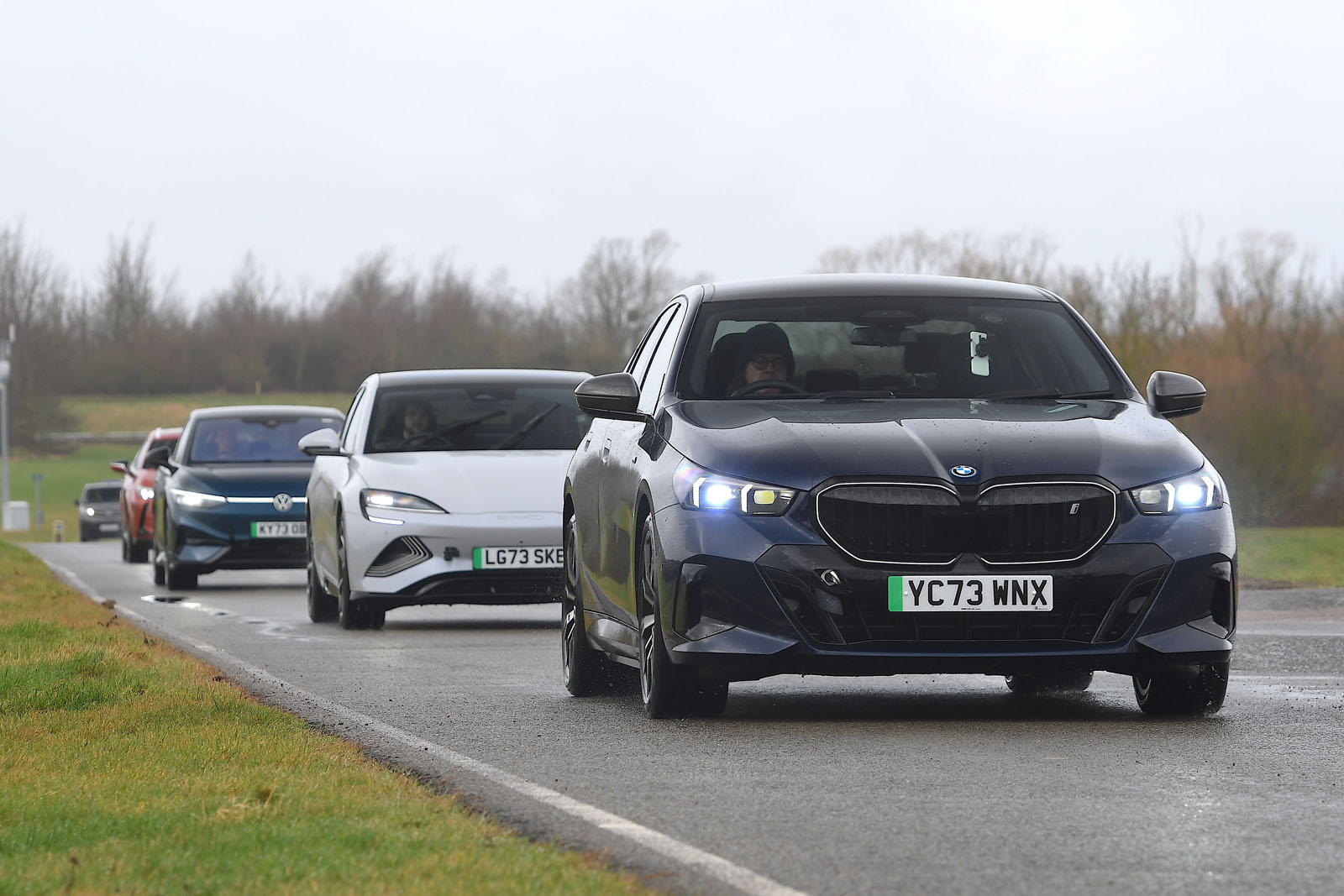- Joined
- Jun 24, 2008
- Messages
- 50,562
- Location
- London
- Car
- 2022 Hyundai IONIQ 5 RWD / 2016 Suzuki Vitara AWD
In All-Wheel Drive form the Cybertruck weighs 2,995kg...
Wow. That's 20% more than Range Rover V8 weighs....
Follow along with the video below to see how to install our site as a web app on your home screen.
Note: This feature may not be available in some browsers.
In All-Wheel Drive form the Cybertruck weighs 2,995kg...
Except in a REEV - the engine does not drive the wheels.
You can use the car and never start the engine - if you don’t want to.
Beginning to wonder if this approval isn't for offroad (site) use only. No mention of road registration and that flies in the face of the pending ban on ICE sales. As would any EV with range extender ICE.
Can you run the engine while the car is 'off' though? If not it doesn't sound any different to a series hybrid (e.g. Nissan e-POWER), where the engine only generates electricity and has no mechanical drive to the wheels. Obviously you can drive any hybrid (series or parallel) without the engine running, provided the battery has charge.

No idea of the actual operating duty of the engine - and how much power it puts into the battery per hour of running.As per my post above, the concept isn't new, but for some reason it just didn't catch on. Perhaps BYD found the market for it?
One issue I can see, though, is that you'll need to run the petrol engine well in advance of the battery being depleted, which requires planning ahead. It might work if you know you'll be driving through an area with no chargers, and running the petrol engine while driving will simply mean that the battery now depletes at a much lower rate (hence the range extension).
I think I’d be more concerned about comfortable seats than range on a vehicle if driving for 6 hours solid, regardless of stopping!
Is this some kind of Guinness world record bladder holding attempt or something?
What’s the obsession with ‘not stopping’ like it’s some kind of achievement or personal goal?
I’d say, personally speaking, absolute max of 3 hours or 200 miles would be where I’d want to stretch my legs and refresh, and I don’t think this puts me in a minority. But I guess we’re all different


As per my post above, the concept isn't new, but for some reason it just didn't catch on. Perhaps BYD found the market for it?
One issue I can see, though, is that you'll need to run the petrol engine well in advance of the battery being depleted, which requires planning ahead. It might work if you know you'll be driving through an area with no chargers, and running the petrol engine while driving will simply mean that the battery now depletes at a much lower rate (hence the range extension).

If that's still the case today sorry to break into this thread again, but I think there might actually be a fact or two in this article
I was quite taken by the chart at the end showing what was draining the battery in an EV at 70mph….

Inside the race to 5.0mpkWh: the secrets to long-range EVs | Autocar
Manufacturers are honing every detail to close in on a transformative efficiency goalwww.autocar.co.uk
Is the ability to go 6 hours without needing a pee really so exceptional
But you can walk into any Nissan dealership and buy an an X-Trail or Qashqai which does that
My understanding is that they will run continuously on petrol once the battery is flat - same as the original BMW i3 (although IIRC that had a pretty small tank?).
But there are numerous charge places within a mile or so. And even more are conveniently placed en route so you don’t end up needing to charge at a destination which doesn’t happen to have a charger, so it’s hardly insurmountable.As also discussed there are plenty of destinations where charging an EV at all (let alone ultra-rapid charging) wouldn't be possible. E.g. The ExCel Centre in Docklands where we were last month (approx. 180 miles from us) has no EV charging.
I can see another potential issue with REEVs.
Because the petrol engine never powers the wheels, it will likely be classified as an onboard generator.
As such, presumably it would be exempt from emissions regulations?
If so, then it will certainly make it cheaper to produce and more reliable to run....
But do we really want to see many of these in urban areas?

But there are numerous charge places within a mile or so. And even more are conveniently placed en route so you don’t end up needing to charge at a destination which doesn’t happen to have a charger, so it’s hardly insurmountable.
Though I agree ExCel do need to have a long hard look at themselves and get some installed - especially as they host the annual London EV show!
But there are numerous charge places within a mile or so. And even more are conveniently placed en route so you don’t end up needing to charge at a destination which doesn’t happen to have a charger, so it’s hardly insurmountable.
Though I agree ExCel do need to have a long hard look at themselves and get some installed - especially as they host the annual London EV show!

Filling up at the end if the leg is old-fashion ICE thinking... because you wouldn't 'top-up' an ICE car along the route. But it's different with EVs.
Of course, but trust me when you've been up since 4AM and are leaving London at 8:30PM facing a 3+ hour drive you just want to get home.




Because the world is full of Macan owners who drive much more than 6 hours and 300+ miles every morning without a comfort break?More pertinent for many is that they can re-instate full operating range in an ICE vehicle in less time than it took you to type that post.
So sorry to break into this thread again, but I think there might actually be a fact or two in this article
I was quite taken by the chart at the end showing what was draining the battery in an EV at 70mph….

Inside the race to 5.0mpkWh: the secrets to long-range EVs | Autocar
Manufacturers are honing every detail to close in on a transformative efficiency goalwww.autocar.co.uk
We use essential cookies to make this site work, and optional cookies to enhance your experience.
